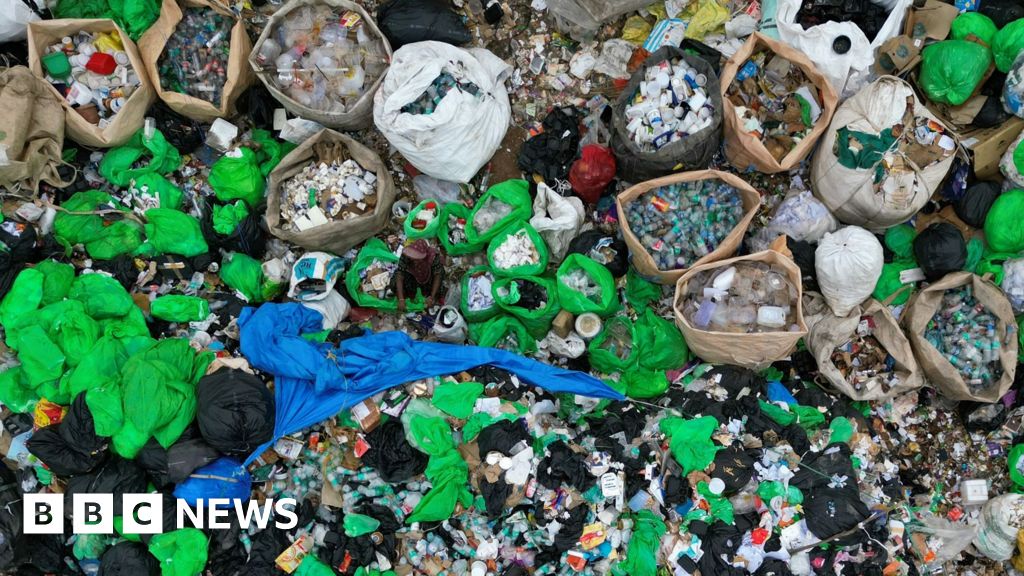India also voiced its concerns with including any commitments to cut production of plastic on the basis it could impact its right to development.
Environmental charities and scientists expressed their deep disappointment that the talks had collapsed and raised concerns about the influence of the fossil fuel industry.
InfluenceMap, a think tank, found that the petrochemical industry intervened dozens of times on the treaty via company statements, social media and consultation responses, and 93% of those were unsupportive of efforts to cut production levels.
But the report, external did highlight that these efforts were outweighed by positive support from key manufacturers of plastic products like Unilever, Mars and Nestlé who want consistent global regulation on the issue.
Jodie Roussell, global public affairs lead for sustainability at Nestlé, said of the talks’ collapse: “Disappointingly, consensus among all nations remains elusive, which further delays critical action to end plastic pollution.
“It also fails to deliver the certainty that business needs to mobilise investment and scale solutions.”
It is now expected that countries will reconvene next year to try and get an agreement, but Eirik Lindebjerg, global plastics policy manager at conservation charity the World Wide Fund for Nature (WWF), told the BBC that the group of 95 should go ahead with their own treaty.
“I think the political reality is that most countries in the world want this – that is the positive thing we can take from this.
“Those countries shouldn’t accept anything less than what they are asking for, there are already so many that a treaty would have a massive impact on ending plastic pollution and that option should be on the table.”

